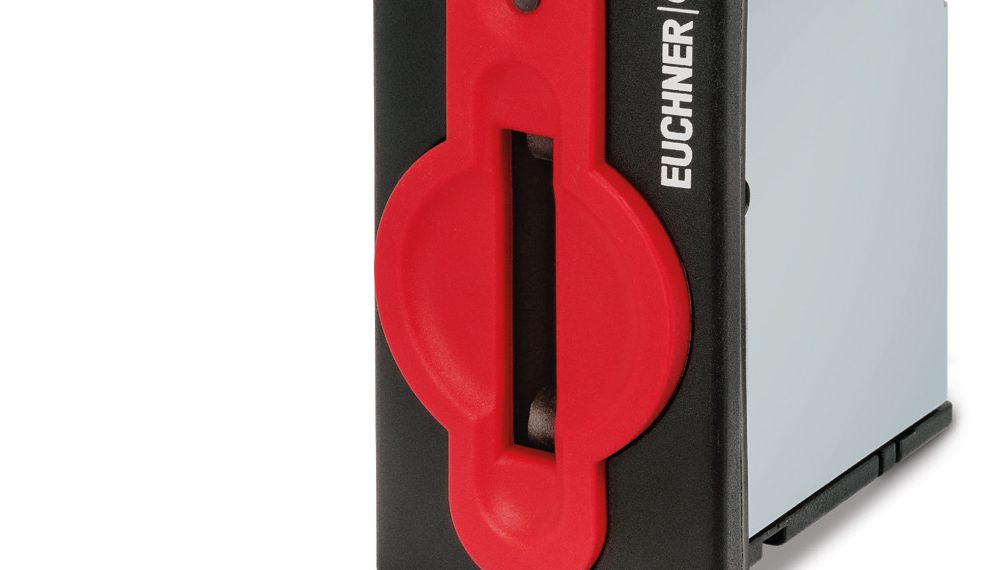The following also applies to plant components in the field of safety technology: Industry 4.0 needs Communication 4.0. At automatica, Euchner will be showing its future-proof innovations — the Multifunctional Gate Box MGB2 Modular with Ethercat P as well as the new products with “FlexFunction”: the safety switch CTS and the safe key system CKS2.
MGB2 Modular — EtherCAT P with FSoE
All functions of the proven MGB2 Modular safety gate system are now also available for the safe EtherCAT P with FSoE. With this development, the company remains true to its claim as a pioneer in the field of safety technology for bus systems. The extensive diagnostic functions in the form of EtherCAT messages and the integrated web server provide a quick and detailed overview of the status of the device. Thanks to the simple parameterization, even replacing the module in the event of service is a simple matter and can be carried out in just a few minutes. With the Multifunctional Gate Box, users benefit from a highly functional safety gate system with guard locking that not only meets the highest level of protection up to PLe. Above all, it also offers a high degree of customization thanks to countless variants and functions as well as diverse networking options and possibilities for Industry 4.0 applications.
One device — many possibilities: the CKS2 safe key system
The new CKS2 secure key system opens up countless application possibilities and guarantees the highest security requirements through the use of highly coded transponder-based keys. By selecting the RFID key, the user decides during initial commissioning whether the device is to be used, for example, for simple stopping and starting of machines and processes, as an electronic key transfer system or as an authorization system for several operators. The configuration is done when the key is learned for the first time. Reconfiguration to a different function is possible at any time. Euchner calls this flexibility “FlexFunction”. In combination with Euchner IO-Link gateways, the range of applications is further extended and extensive diagnostic and communication functions are made available. The CKS2 is also available as a submodule for the successful MGB2 Modular door locking system. Possible areas of application include fully automated logistics systems or complete turnkey plants.
One fits all — safety switch CTS with new FlexFunction
The CTS safety switch is ideal for applications where a high locking force is required and only limited space is available. The small dimensions (135 x 31 x 31mm) combined with a maximum holding force of 3900 N allow universal use. Whether for swing or sliding doors, the CTS can be used flexibly thanks to three different mounting orientations. An escape release can also be retrofitted at any time. In addition to the proven features of the transponder-coded Euchner safety switches with guard locking, the CTS combines various functions in one device thanks to the new “FlexFunction”, which are otherwise only found in individual variants. Whether with or without guard locking monitoring, whether high or low-coded evaluation of the actuator code — the CTS gives users the choice. The function is selected via the appropriate actuator. The CTS also has various connection options.
New: The Euchner Academy from Euchner Safety Services
Visitors to the exhibition booth can also find out about the comprehensive service portfolio offered by Euchner Safety Services. The safety experts provide support throughout the entire service life of a machine — when a machine is accepted by the manufacturer, when regular inspections are carried out in accordance with the German Ordinance on Industrial Safety and Health (Betriebssicherheitsverordnung), and in the area of safety engineering for new machines or machine conversions. Since the beginning of the year, the company has expanded its safety services by offering a wide range of training courses on machine safety topics in its own academy. In training events held throughout Germany, expert instructors communicate current aspects and solutions for the safe operation of machines. Plant operators and manufacturers learn which legal requirements are relevant.

















